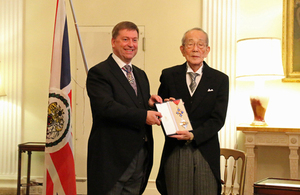An inquiry into a London-based Christian charity has found evidence of serious misconduct and/or mismanagement by the former trustees in the administration of the charity. The Charity Commission has disqualified the individuals after they resigned as trustees, holding them to account for financial mismanagement, governance failings, and non-compliance with the Commission.
In its investigation into Kingdom Life Ministries (1109664) which was opened after repeated failures to file accounts*, the regulator found that all trustees received unauthorised payments from the charity between June 2013 and November 2018, totalling £456,853.
Financial mismanagement
During an inspection of the charity’s records, investigators established that the 3 former trustees had decided their own weekly salary payments of £200, £200 and £90 respectively. These payments were made in breach of the charity’s governing document, and continued even after formal regulatory advice instructing an end to these arrangements. A total of £28,971 was paid in the months following the inspection.
The former trustees claimed that other payments related to reimbursement of costs, but failed to provide sufficient information to evidence these. After being informed that the inquiry was closing, they did submit invoices relating to construction work, international flights and video production, however analysis of the charity’s bank statements showed that the majority of payments made to the former trustees were round sums.
Bank records also showed that over £700,000 in cash was withdrawn from the charity’s account over 3 years. After being informed that the inquiry was closing, the former trustees submitted a list of estimated expenses, but these do not match the withdrawals.
In June 2018 an Order was issued restricting financial transactions by the charity, but following the Order the inquiry noticed a significant reduction of deposits into the charity’s bank account. The inquiry therefore issued a further Order directing the former trustees to pay all existing charitable funds and future funds into the charity’s bank account. All 3 trustees resigned 12 days later.
Conflicts of interest
Serious conflicts of interest also went unmanaged by the former trustees. Two were married, meaning that there was only one independent un-conflicted trustee. Decisions were made without identifying, recording or managing conflicts, and the charity had no written policy or procedures to manage conflicts of interest. Over £38,000 was paid to individuals connected to the former trustees between December 2015 and May 2018.
Regulatory action
The former trustees failed repeatedly to comply with legal requirements set by the Commission, including an Official Warning issued under section 75A of the Charities Act.
Under section 181A of the Charities Act, the inquiry has disqualified all 3 former trustees of Kingdom Life Ministries from serving as a trustee or senior manager of any charity in England and Wales, for a period of 10 years.
Amy Spiller, Head of Investigations Team at the Charity Commission said:
We know that late filing of accounts can be an indicator of far more serious concerns within a charity: this inquiry has confirmed that, and brought to light some concerning patterns of mismanagement.
Charity trustees should carry out their duties with probity and care. They should be driven at all times by their charitable mission and purpose, and a desire to make things better for the community they serve. This was not the picture painted at Kingdom Life Ministries, and it’s right that those responsible have been held to account for their failings in the running of this charity.
The inquiry has issued a further order under section 84 of the Charities Act requesting the new trustees to address outstanding issues with the charity’s accounts and financial management. They have already engaged positively with the inquiry.
Amy Spiller added:
I hope and expect that the new trustees will be able to drive forward positive change at the charity, for the benefit of its congregation and people it helps.
The full report is available on GOV.UK.
Ends.
Notes to editors:
- *The charity was previously probed under a double defaulters class inquiry into charities that fail to file accounts with the Commission for 2 or more consecutive years.
- The charity runs a church in Tottenham, London.
- The Charity Commission is the independent regulator of charities in England and Wales. To find out more about our work please see the About Us page on GOV.UK.

